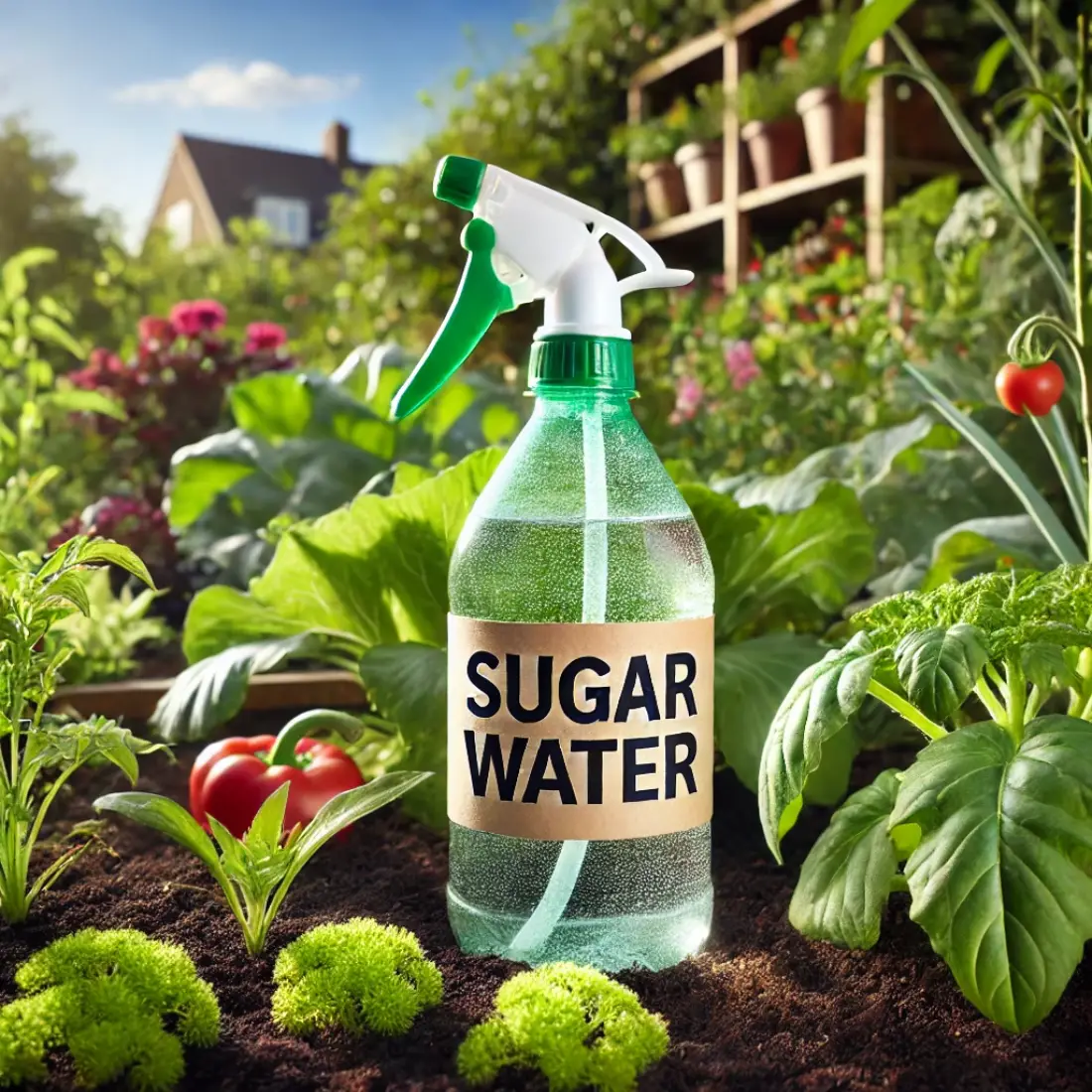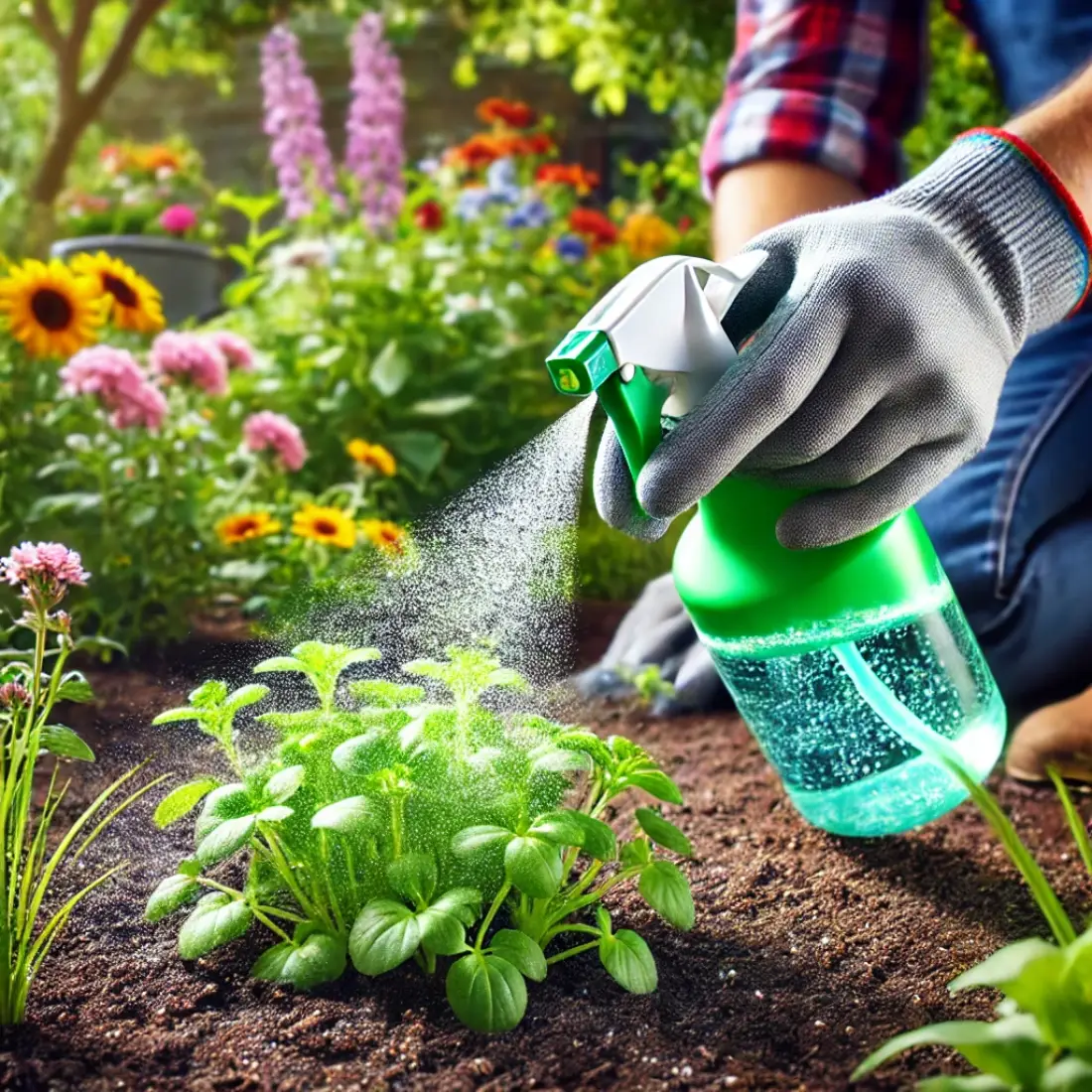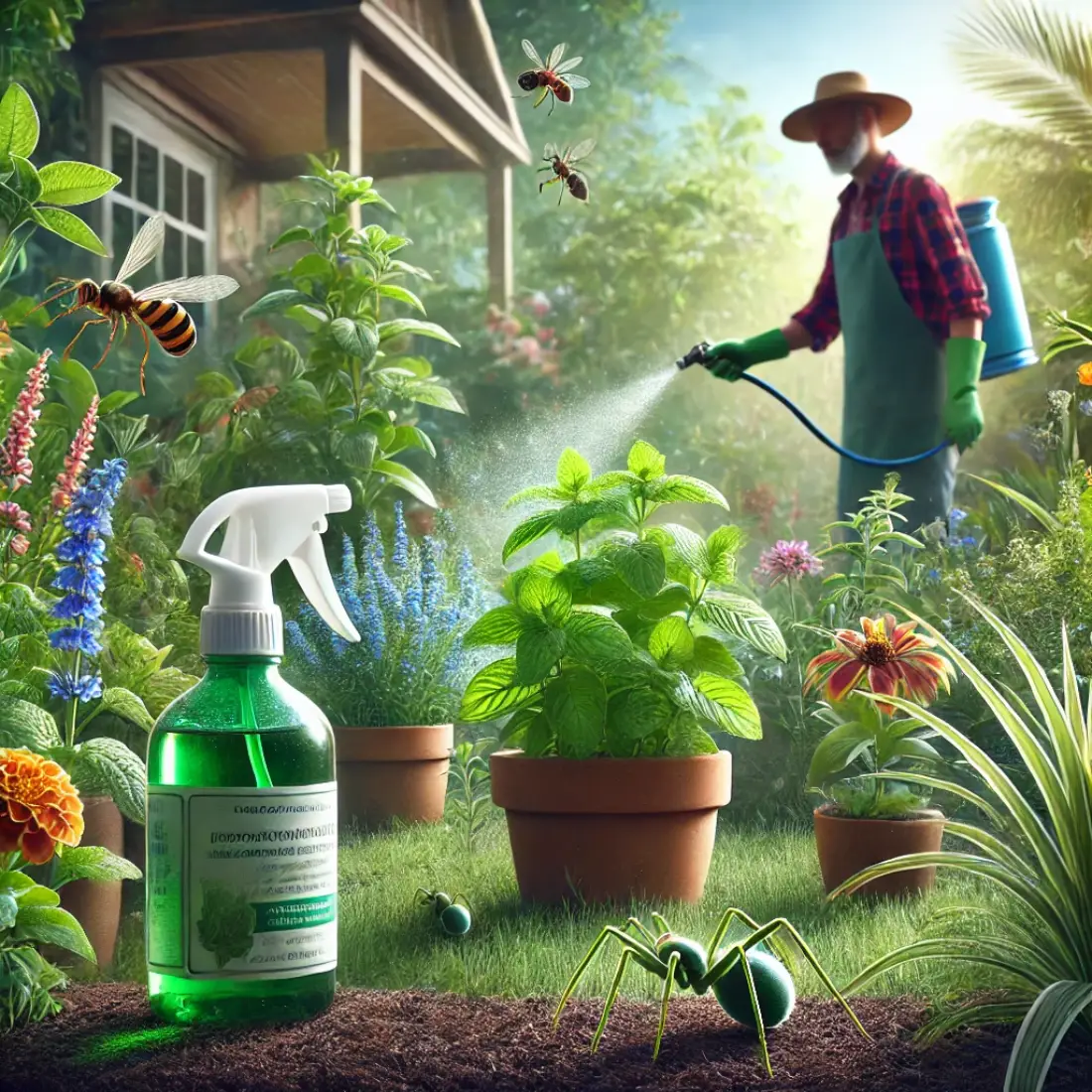An innovative approach in sustainable agriculture is using sugar water for weed control. This method involves applying a sugar and water solution to inhibit weed growth, offering an eco-friendly and cost-effective alternative to traditional weed management techniques.
Research has shown that sugar water alters soil microbial communities, suppressing weeds while promoting crop health. By temporarily disrupting nutrient availability in the soil, sugar water affects weed germination and growth stages.
- Eco-Friendly: Sugar water is a non-toxic, biodegradable alternative to chemical herbicides, promoting sustainable agriculture.
- Cost-Effective: It is cheaper than chemical herbicides, beneficial for small-scale and organic farmers.
- Soil Health: Enhances soil microbial activity, improving soil health and crop growth while suppressing weeds.
- Action Mechanism: Creates a nutrient imbalance in the soil, inhibiting weed germination and growth without harming crops.
- Safe to Use: Poses no health risks to workers, consumers, or animals.
- Effective: Proven to control various weed species, especially in early growth stages.
- Versatile Application: Easily prepared and applied through spraying or soil drenching.
- Challenges: May attract pests and effectiveness can vary with soil type and climate.
Mechanism of Action
Sugar water acts as an organic herbicide primarily by altering soil microbial activity and creating a temporary nutrient imbalance. When sugar is added to the soil, it stimulates the growth and activity of soil microorganisms. These microbes use the sugar as an energy source, increasing their population and competing with weeds for essential nutrients like nitrogen.
This heightened microbial activity leads to nutrient competition, reducing the availability of nitrogen for weeds. As a result, weed root systems become weaker and less capable of absorbing necessary nutrients and water. Additionally, the increased microbial activity and nutrient competition create an unfavorable environment for weed seed germination, delaying it and lowering overall germination rates.
The application of sugar water alters the soil’s carbon to nitrogen ratio, favoring microbial growth over weed growth. This temporary nutrient imbalance primarily affects weeds during their critical germination and early growth stages, while established crops remain relatively unaffected.
Compared to traditional methods, sugar water does not directly kill weeds like chemical herbicides but instead suppresses them by enhancing microbial competition and altering soil nutrients. It offers a sustainable and environmentally friendly alternative to chemical and mechanical weed control methods.
Weeds Most Effectively Controlled by Sugar Water
Annual Weeds:
- Crabgrass (Digitaria spp.): Sugar water can hinder the germination and growth of this fast-growing annual weed.
- Pigweed (Amaranthus spp.): Effective in suppressing young pigweed seedlings before they establish.
- Foxtail (Setaria spp.): Sugar water disrupts the nutrient uptake of foxtail, particularly in its early stages.
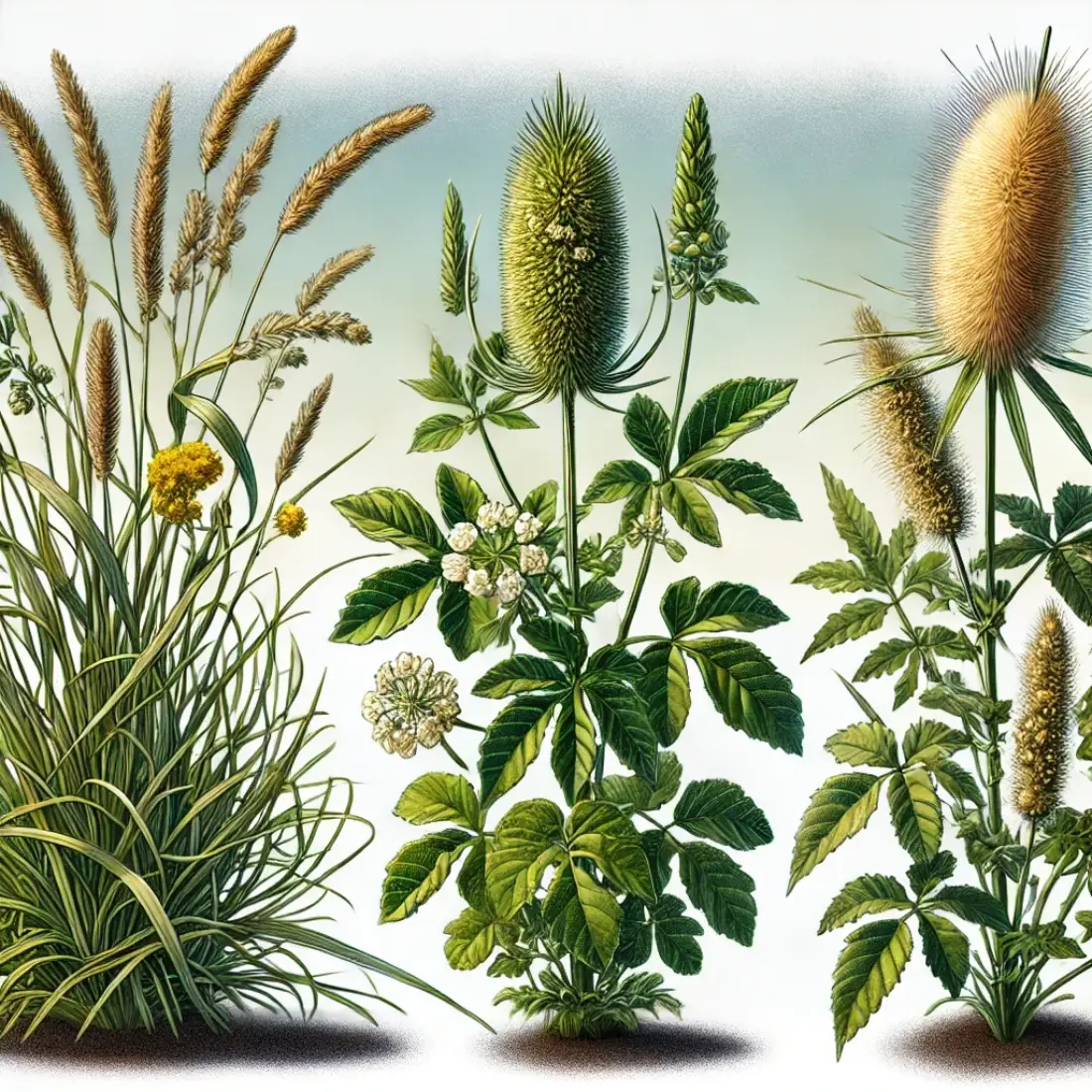
Broadleaf Weeds:
- Lambsquarters (Chenopodium album): The solution can reduce the germination rate of lambsquarters, a common garden weed.
- Common Purslane (Portulaca oleracea): Effective in reducing the presence of this succulent weed, especially during its initial growth phase.
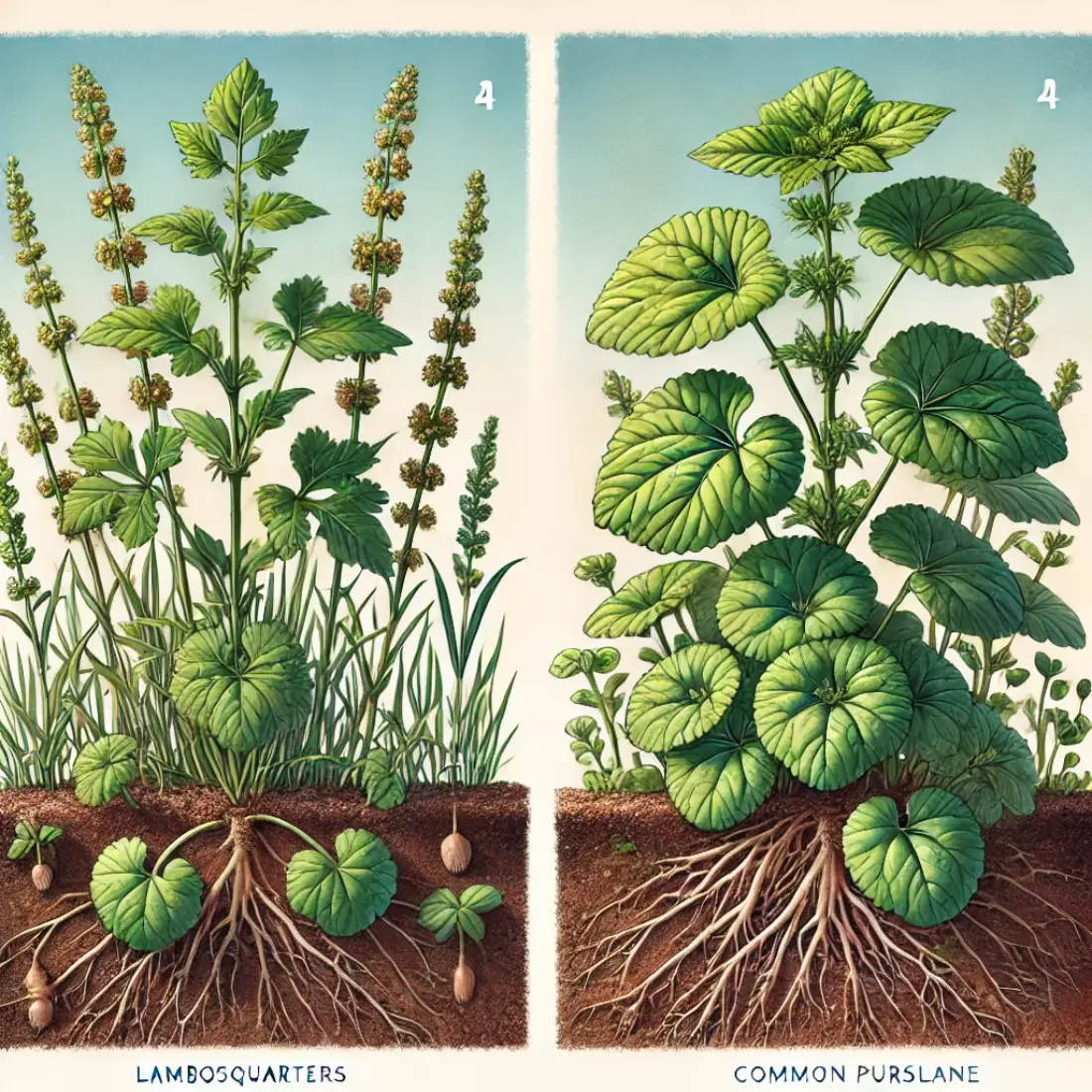
Grassy Weeds:
- Barnyardgrass (Echinochloa crus-galli): Sugar water can suppress the growth of this aggressive grassy weed.
- Annual Bluegrass (Poa annua): Early application of sugar water can help control the spread of this weed.
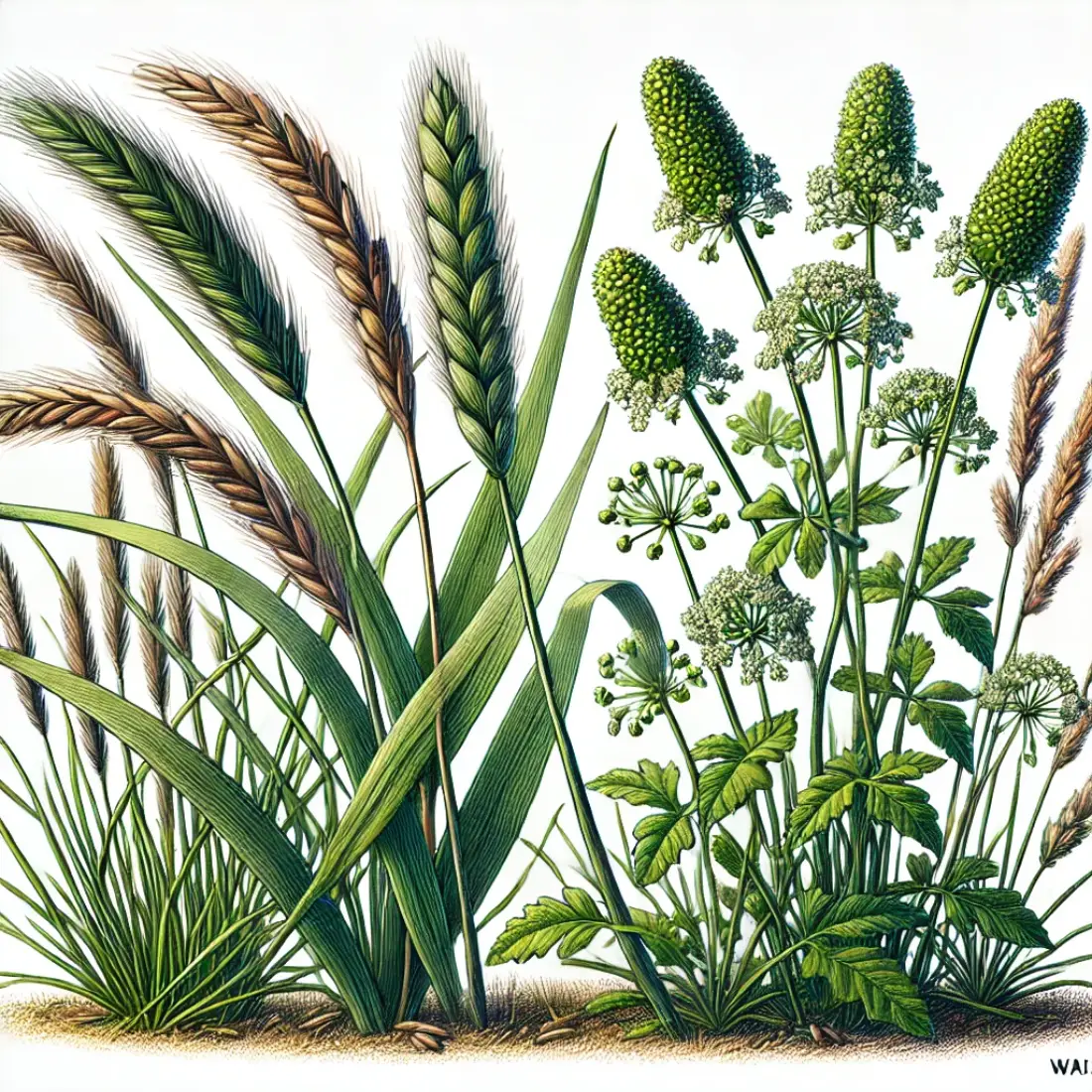
Seedlings and Young Weeds:
- Dandelion (Taraxacum officinale): While mature dandelions are hardy, sugar water can inhibit the germination and growth of young dandelion seedlings.
- Chickweed (Stellaria media): Effective against chickweed when applied during its early seedling stage.
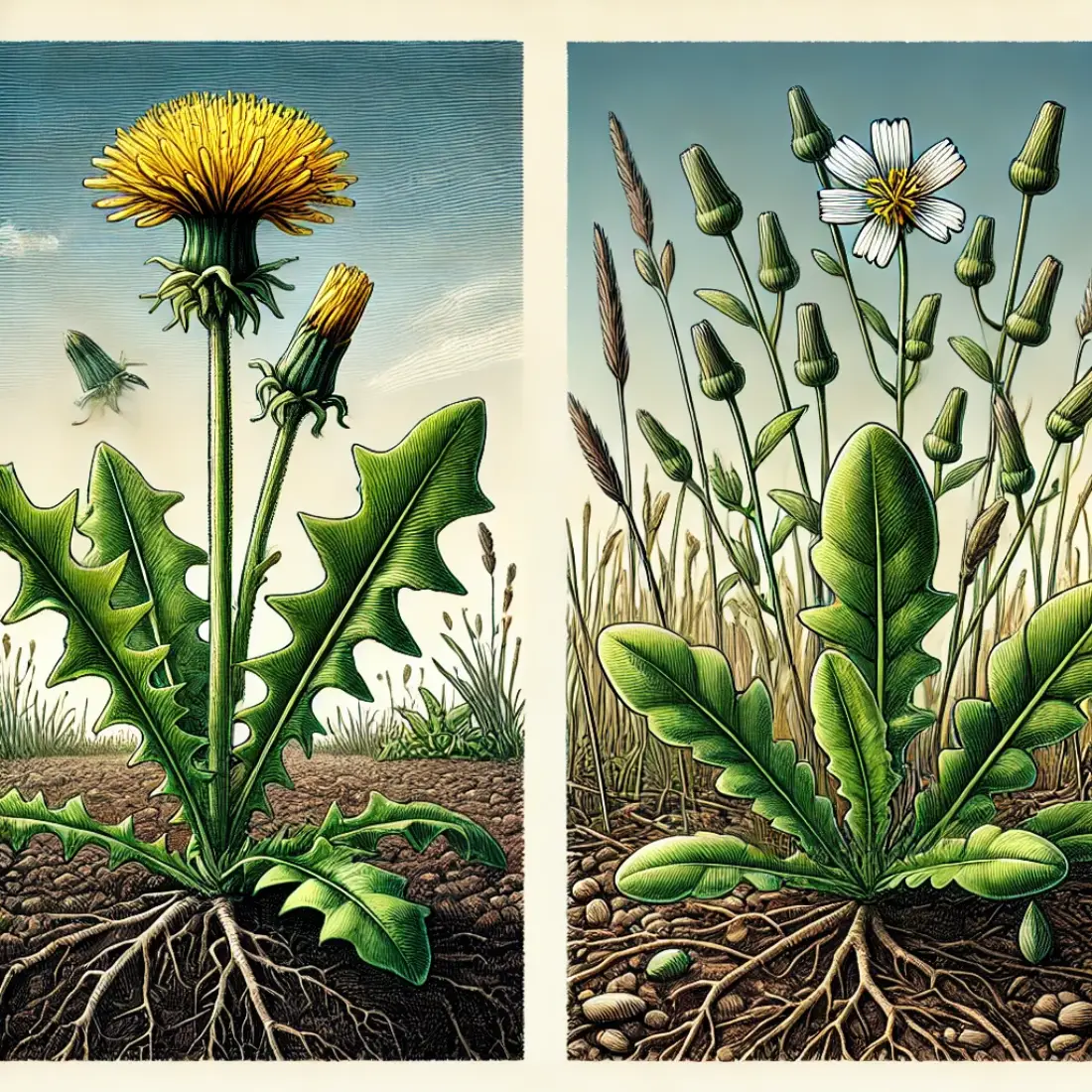
Application Methods
Ingredients and Ratios: The typical ratio for a sugar water solution is about 1-2 pounds of sugar per gallon of water. This ratio can be adjusted based on the specific needs and conditions of the soil and crops.
Mixing Process: Dissolve the sugar thoroughly in warm water to ensure even distribution. Stir the solution until the sugar is completely dissolved and the mixture is uniform.
Application Techniques
Spraying Methods:
- Use a garden sprayer or backpack sprayer to evenly distribute the sugar water solution over the soil surface.
- Ensure that the spray covers the areas where weeds are most likely to germinate and grow.
Soil Drenching:
- Pour the sugar water solution directly onto the soil around the base of plants.
- This method ensures that the solution reaches the root zone, where it can effectively alter microbial activity and nutrient availability.
Optimal Times for Application:
- Apply the sugar water solution early in the growing season, before weeds have fully established. This timing targets weed seeds and young seedlings during their critical germination and early growth stages.
- Consider applying after rain or irrigation to maximize soil penetration and effectiveness.
Frequency for Best Results:
- Repeat applications every 2-4 weeks throughout the growing season, depending on the severity of the weed problem and the effectiveness of previous applications.
- Monitor weed growth and soil conditions to determine if additional applications are needed.
Challenges and Limitations
Potential Drawbacks
Attraction of Pests: Sugar water can attract ants, rodents, and other pests that feed on sugar. This may create additional pest management challenges for farmers.
Impact on Non-Target Plants: While sugar water is intended to suppress weeds, it may also affect non-target plants, especially young seedlings that are not yet established, potentially leading to unintended growth inhibition.
Nutrient Imbalance: The temporary nutrient imbalance created by sugar water might negatively impact certain crops, particularly if applied excessively or inappropriately.
Environmental Considerations
Climate Suitability: The effectiveness of sugar water as a weed control method can vary depending on climate conditions. In very wet or dry climates, the results may not be as favorable due to rapid leaching or insufficient microbial activity.
Soil Type Limitations: The soil type can influence the effectiveness of sugar water. Sandy soils may not retain the solution long enough for it to be effective, while clay soils might not allow for adequate penetration.
Application Challenges
Consistency in Preparation: Ensuring a consistent mixture of sugar water can be challenging, especially on a large scale. Uneven distribution can lead to inconsistent results in weed suppression.
Labor and Time Intensive: Preparing and applying sugar water can be labor-intensive, particularly for large-scale farming operations.
FAQs on Sugar Water for Weed Control
What is sugar water weed control?
Sugar water weed control involves using a solution of sugar dissolved in water to inhibit weed growth by altering soil microbial activity and nutrient availability.
How does sugar water suppress weeds?
Sugar water stimulates soil microbes, which compete with weeds for nutrients like nitrogen. This competition reduces nutrient availability for weeds, hindering their germination and growth.
Is sugar water safe for crops?
Generally, sugar water is safe for established crops as it mainly affects weed seeds and young weeds. However, excessive use may impact young seedlings, so careful application is necessary.
How do I prepare a sugar water solution?
Mix 1-2 pounds of sugar per gallon of warm water until fully dissolved. Adjust the ratio based on specific needs and conditions.
How should I apply sugar water to my garden?
Apply the solution using a garden sprayer for even distribution over the soil or pour it directly onto the soil around the base of plants for soil drenching.
When is the best time to apply sugar water for weed control?
The best time is early in the growing season, before weeds establish. Applications after rain or irrigation can enhance effectiveness.
How often should I apply sugar water to control weeds?
Repeat applications every 2-4 weeks throughout the growing season, monitoring weed growth and soil conditions to determine the need for additional treatments.
Are there any drawbacks to using sugar water for weed control?
Potential drawbacks include attracting pests, impacting non-target plants, and the labor-intensive nature of preparation and application. There may also be soil and climate-related limitations.
Can sugar water attract pests?
Yes, sugar water can attract pests like ants and rodents, which may require additional pest management efforts.
Is sugar water weed control effective in all soil types and climates?
Effectiveness varies with soil type and climate. Sandy soils may not retain the solution well, and extreme climates may affect microbial activity, influencing results.

